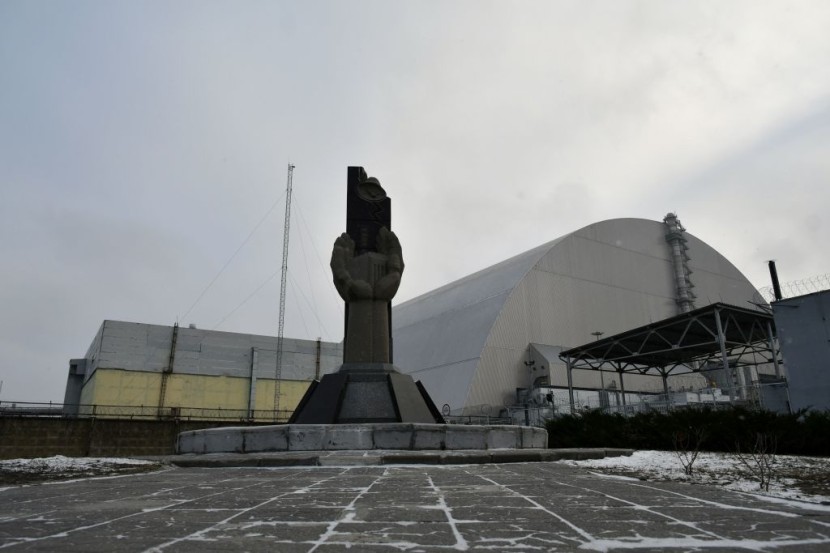
A Russian drone attack has struck the radiation shelter protecting Chernobyl's damaged nuclear reactor, Ukrainian President Volodymyr Zelensky has claimed.
The overnight strike at the site of the world's worst nuclear disaster caused a fire that was later extinguished, he said.
As of Friday morning, radiation levels inside and outside Chernobyl remain normal and stable, according to the International Atomic Energy Agency (IAEA).
Russia has denied any involvement, stating its military does not target Ukrainian nuclear infrastructure and dismissing the claims as false.
The IAEA, which oversees global nuclear safety, reported that fire personnel and emergency vehicles responded within minutes of the explosion. No casualties were reported, but the agency remains on "high alert" following the incident.
"There is no room for complacency," IAEA Director General Rafael Mariano Grossi warned.
Chernobyl's 1986 disaster released a massive plume of radioactive material into the air, triggering a public health crisis across Europe. The giant protective shield, made of concrete and steel, was built to contain further radioactive leaks for the next century. It spans 900 feet wide, stands 354 feet tall, and cost $1.6 billion to construct.
Zelensky posted footage on X appearing to show damage to the shield covering the remains of the reactor that lost its roof in the explosion. He argued that the attack demonstrated that Russian President Vladimir Putin is "definitely not preparing for negotiations."
"Every night, Russia carries out such attacks on Ukraine's infrastructure and cities," Zelensky said, calling for "unified pressure" to hold Moscow accountable.
Professor Jim Smith from the UK's University of Portsmouth, who has studied the aftermath of the disaster since 1990, acknowledged that the strike was a "horrendous attack on a very important structure" but said he was "not concerned" about radiation risks.
He told the BBC that a thick concrete "sarcophagus" beneath the shield protects radioactive dust from the explosion, and a drone strike would not be powerful enough to compromise this protective layer.
Later on Friday, Zelensky will meet US Vice-President JD Vance and Secretary of State Marco Rubio for talks in Munich, where the ongoing war in Ukraine is expected to dominate discussions at a major security conference.
The attack comes amid rising military activity around the Zaporizhzhia Nuclear Power Plant in southern Ukraine, the IAEA reported.
In December, Ukraine and Russia accused each other of launching a drone attack on a convoy of IAEA experts en route to Zaporizhzhia, Europe's largest nuclear plant. Grossi condemned that attack as "unacceptable," emphasizing the agency's role in preventing nuclear accidents during the conflict.
The IAEA last year urged restraint after an attack on Zaporizhzhia raised concerns of a "major nuclear incident." Russia and Ukraine blamed each other for the August strike.
"I'm more concerned about Zaporizhzhia than Chernobyl," Prof Smith told the BBC.
"The reactors [at Zaporizhzhia] are currently shut down, but there is more live fuel there. Chernobyl is still very radioactive, but it's not in a 'hot state' because of its age."
The exact death toll from the Chernobyl disaster remains disputed. Officially, 31 people died immediately, while the UN estimates that 50 deaths can be directly attributed to the explosion.
In 2005, the UN predicted that up to 4,000 more people might eventually succumb to radiation exposure-related illnesses.








